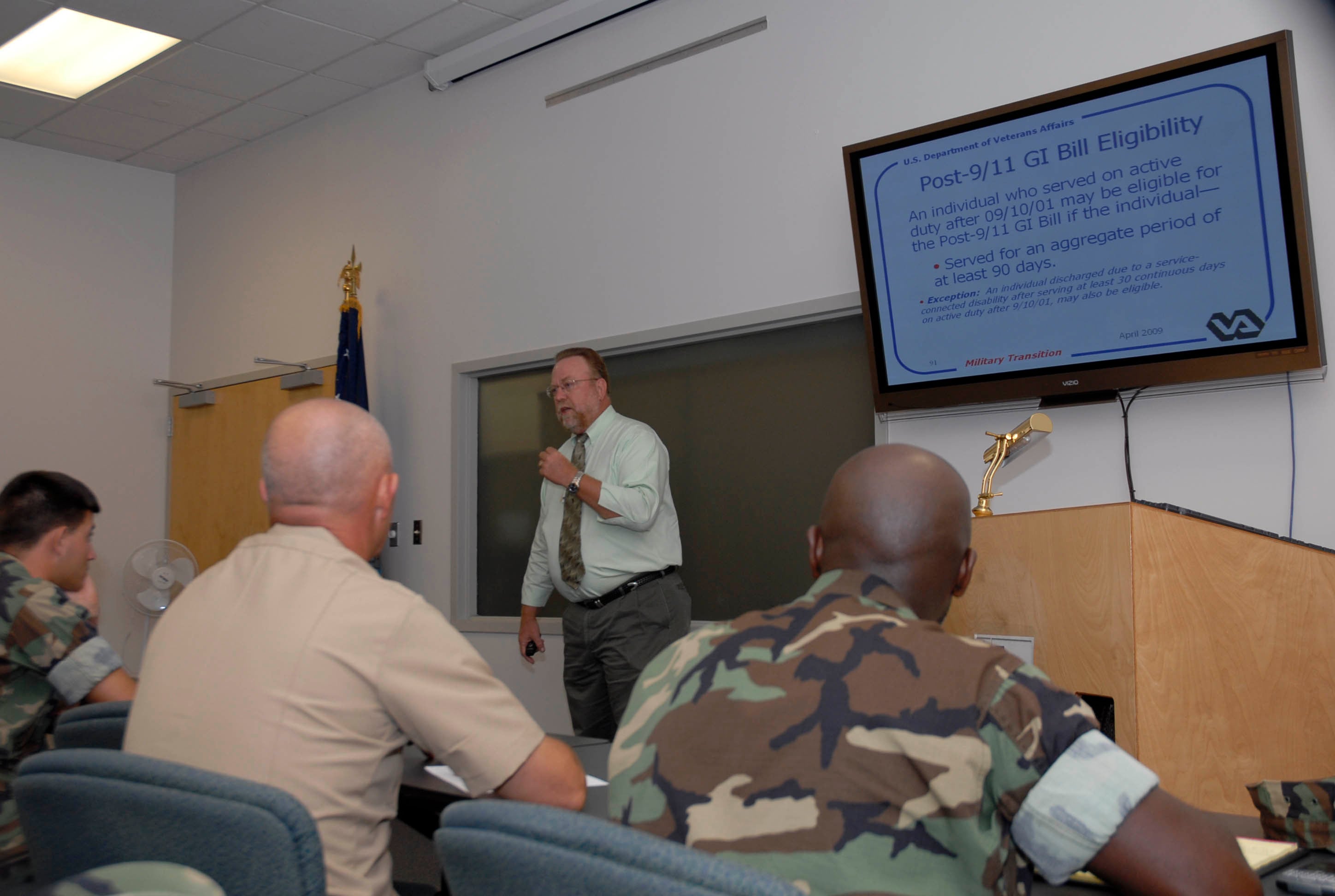Jim Rudisill’s five-year fight with the Department of Veterans Affairs over his GI Bill benefits may be coming to an end soon. And the result could benefit millions of veterans hoping for a few more months of payouts to finish their college degrees.
Rudisill, 40, is the central figure in the ongoing federal court case to open an extra year of education benefits for veterans who have used up their post-9/11 GI Bill benefits but still have some eligibility left under the Montgomery GI Bill program.
Currently, VA officials make students give up eligibility for the latter when they register to begin using the former program.
But in 2015, Rudisill — an Army veteran wounded in a roadside bomb attack in Iraq in 2005 — challenged that opt-out, and later sued VA over the provision, saying it was based on a misreading of the law by department officials.
RELATED

He had hoped to gain another year’s worth of education benefits and attend Yale Divinity School, as part of the process to become an Army chaplain. As the legal process has drug on, the chance for his return to the service has closed.
“I’ve just aged out at this point,” he told Military Times in a recent interview. “But more important to me now is trying to make sure this same thing doesn’t happen to other veterans.”
Earlier this month, Rudisill’s attorneys made their latest arguments on the case before the U.S. Court of Appeals for the Federal Circuit. Lower courts have already sided with him, but federal officials have not made any changes as they continue to appeal those rulings.
A final decision from the latest court is expected sometime in the next few months, possibly in time for students looking to enroll in college courses in fall 2021.
Either side will be able to appeal the ruling to the Supreme Court, but the standard for getting that case heard may be unrealistically high, especially if the courts rule against VA officials again. The Supreme Court declines the vast majority of cases seeking a hearing, allowing the lower court’s ruling to stand as law.
For Rudisill, the case represents a chance to get partial compensation for his current degree program at another theological school, coursework aimed at helping him follow a new goal of being a minister to veterans and first-responders.
But for an estimated 1.7 million veterans with some Montgomery GI Bill eligibility left, Rudisill’s lawyers argue, the courts’ rulings could be life changing.
“I’ve heard from a number of other veterans who this will help,” he said. “I’ve heard from Army buddies, through friends of friends, that this may affect them as well.”
Under the Post-9/11 GI Bill education benefits program, eligible veterans receive 36 months of tuition payouts, housing stipends and other financial assistance.
The Montgomery GI Bill benefits program offers far less money, but still has several thousands of dollars annually to offer veterans for tuition costs if they paid into the program at the start of their military service.
For veterans like Rudisill, that’s the difference between being able to afford the costs of a graduate degree program or dropping their education goals.
Under existing federal statute, any government higher education payouts are capped at 48 months. So, veterans who use up their post-9/11 GI Bill program could get 12 more months of money for school under the court ruling.
Veterans Affairs officials have argued in court that using both benefits amounts to double-dipping on federal benefits, since the education funding is coming from the same source (the VA budget).
RELATED

If their arguments continue to be unsuccessful, they could owe Montgomery GI Bill benefits not only to current veterans trying to use them but also past veterans who continued with their education and are now looking for reimbursement.
A lawyer representing Rudisill, Tim McHugh, an Army veteran and associate at the Hunton Andrews Kurth law firm, said those issues will likely have to be resolved in future lawsuits against the department.
“Right now, it’s a mess,” he said. “VA for months has essentially not been following court decisions [on this topic]. They could and should already be granting these benefits now.”
In a twist, Congress last week passed legislation that included plans to phase out the Montgomery GI Bill benefit by 2030. The move has been discussed in recent years given the popularity and generosity of the Post-9/11GI Bill.
But that still leaves almost a decade of confusion over how the separate benefits programs can be combined.
For now, Rudisill — and numerous other veterans — are left to wait for another court ruling. The plaintiff said he is frustrated by the long legal road he has already traveled, but finds some comfort in knowing his fight may one day help other veterans.
“There’s nothing fast about VA,” he said. “I knew that before I started this process.”
“But I’m in a better place than a lot of my brethren. There are many veterans out there who are totally reliant on this decision for whether they can go back to school. So I’m happy this might fix that.”
Leo covers Congress, Veterans Affairs and the White House for Military Times. He has covered Washington, D.C. since 2004, focusing on military personnel and veterans policies. His work has earned numerous honors, including a 2009 Polk award, a 2010 National Headliner Award, the IAVA Leadership in Journalism award and the VFW News Media award.





